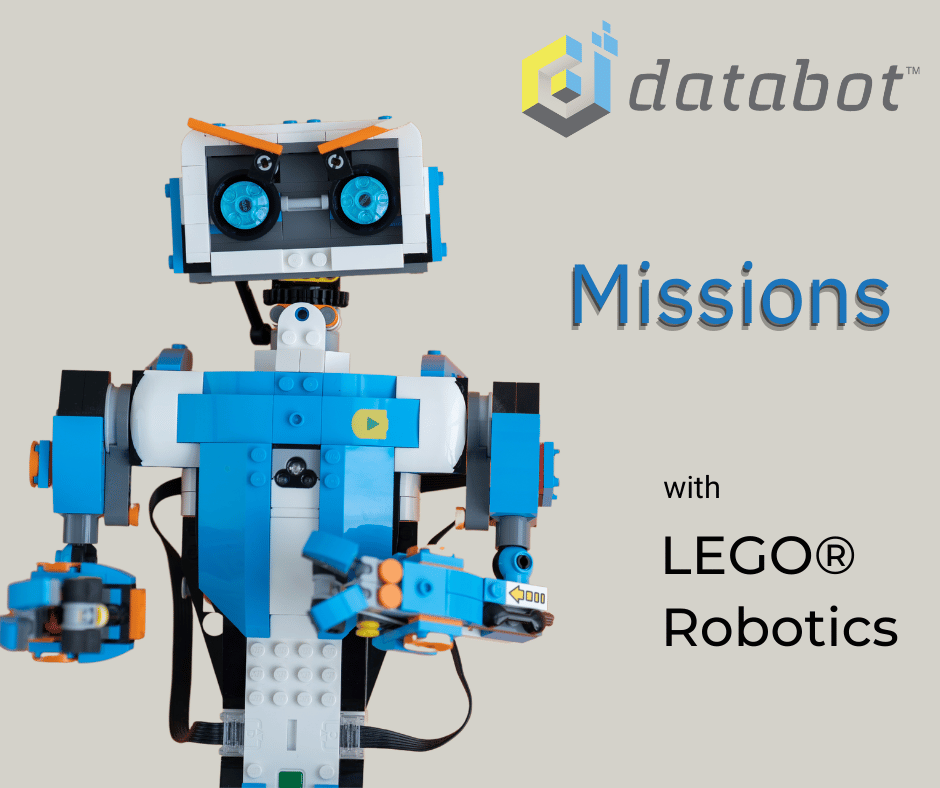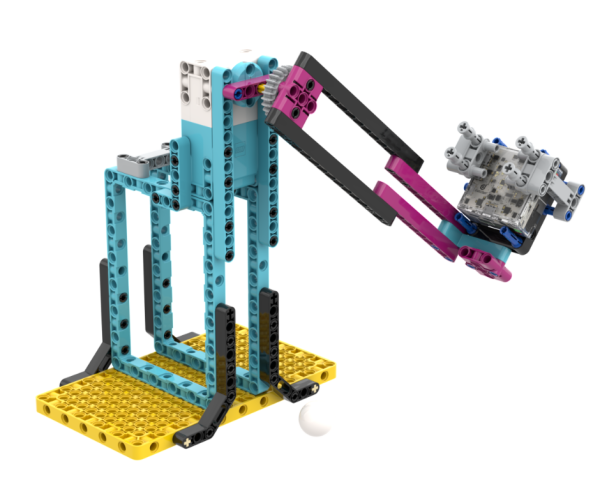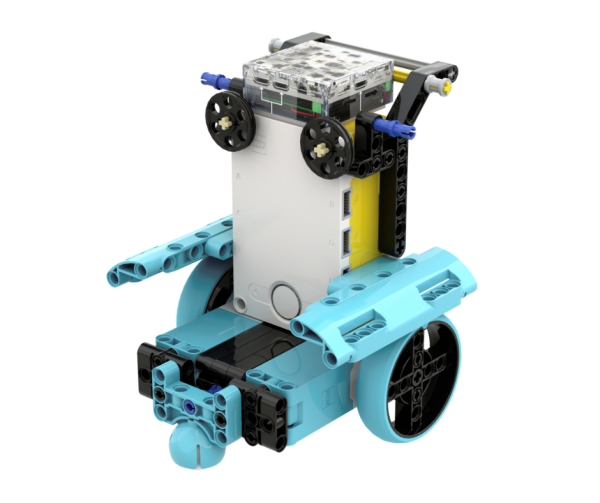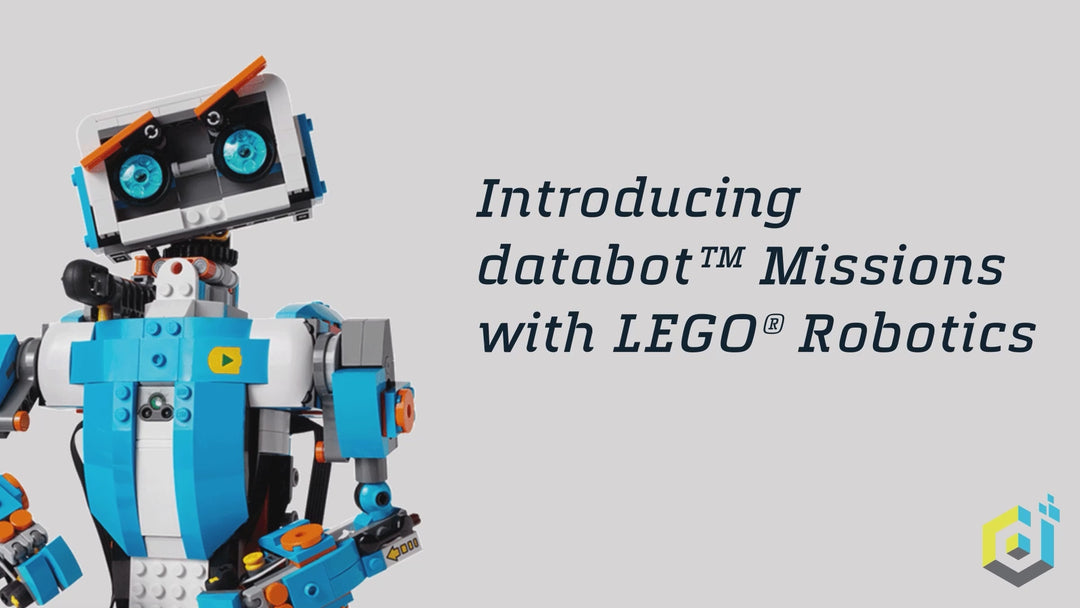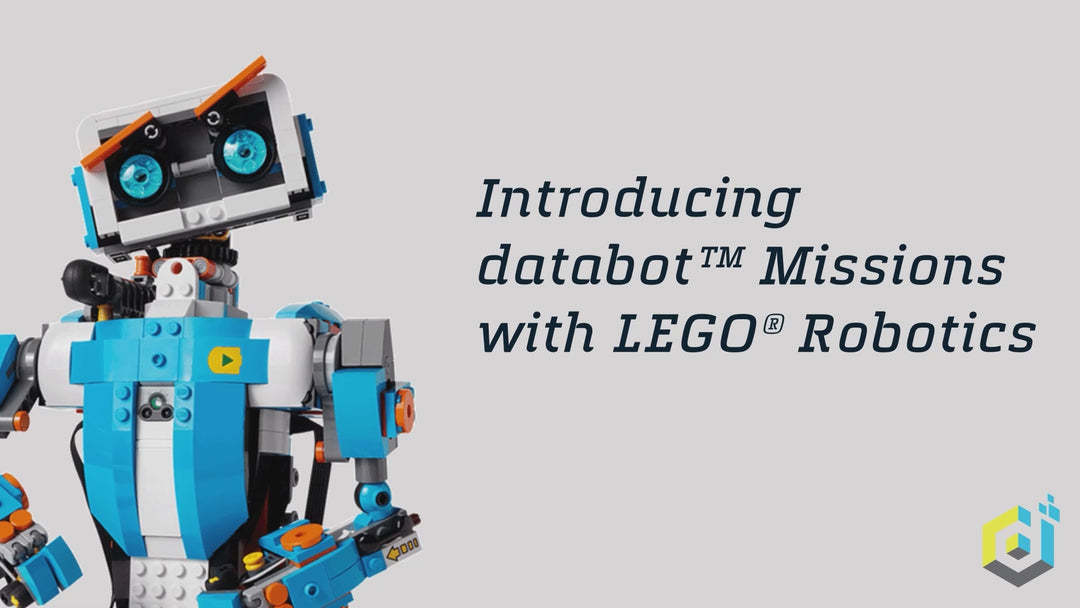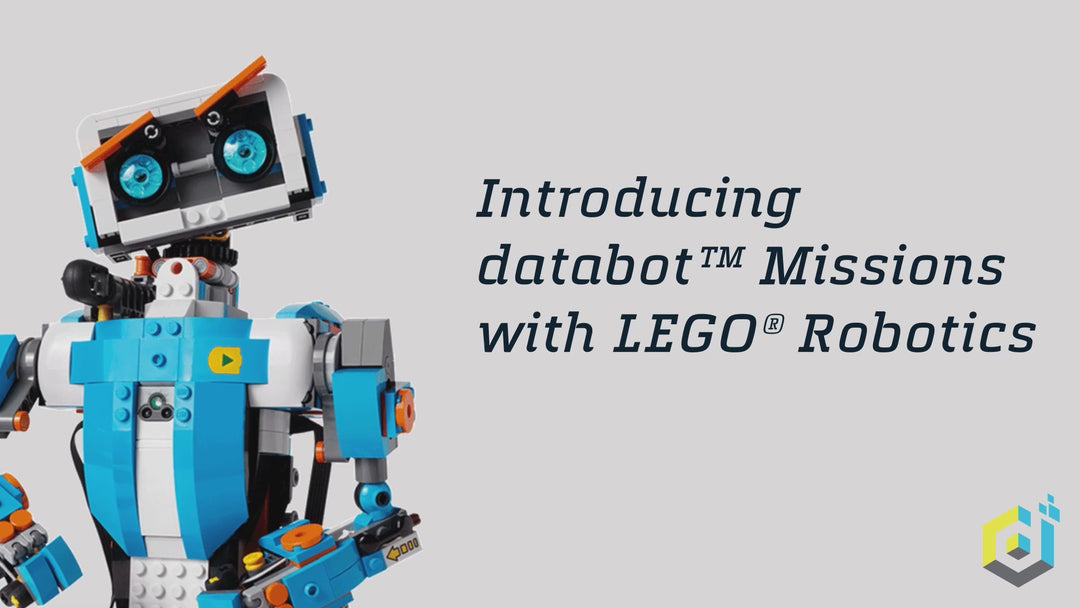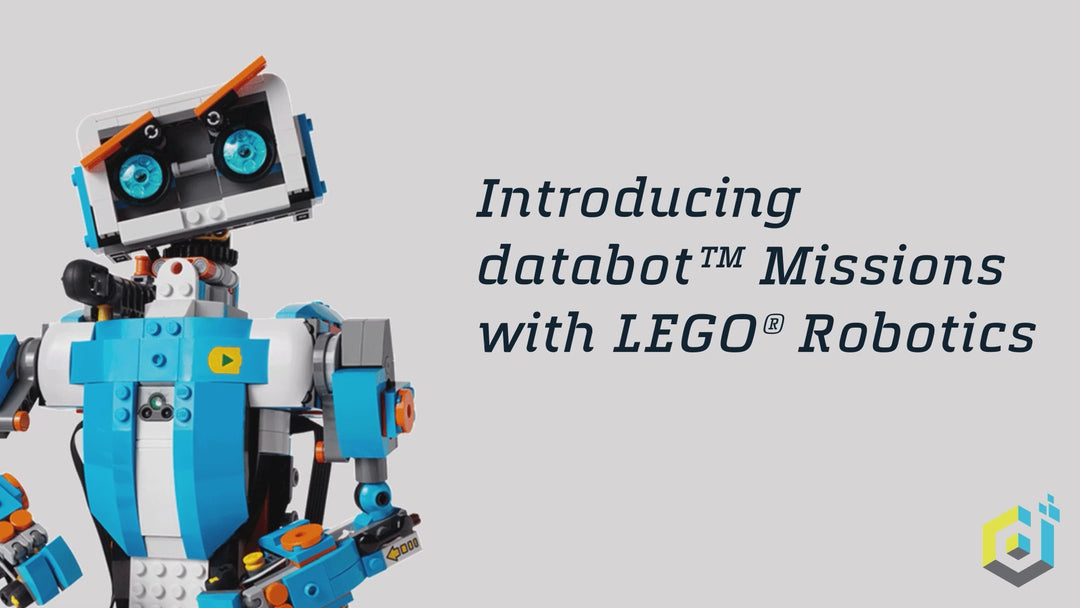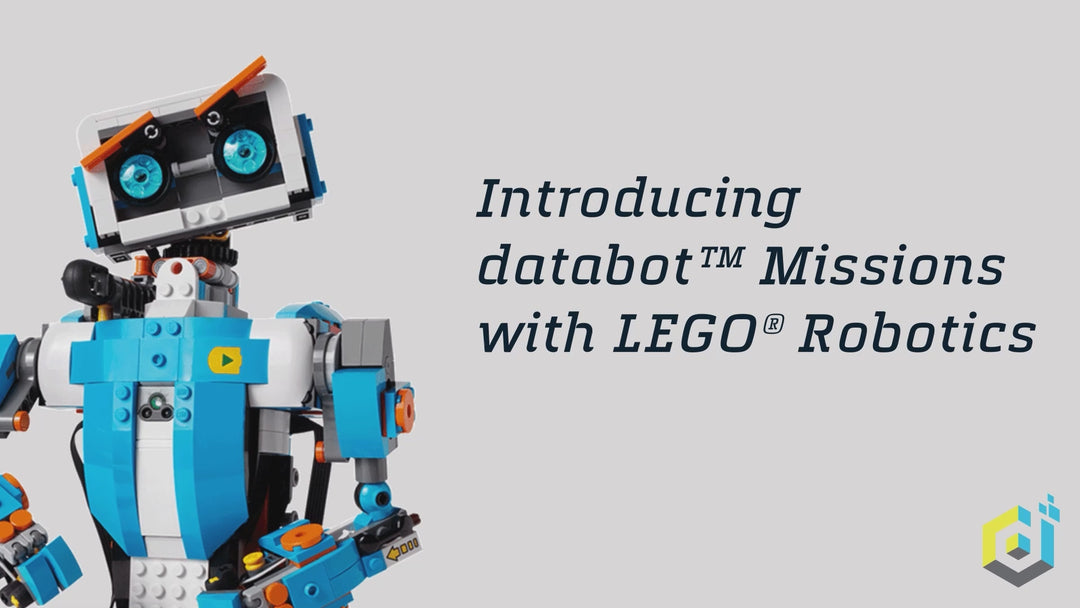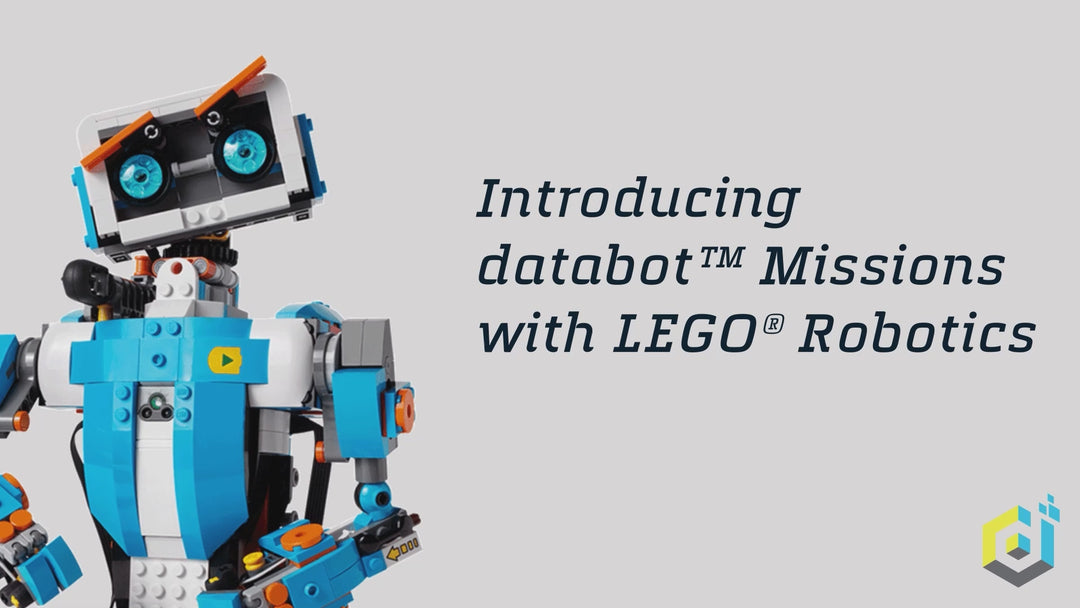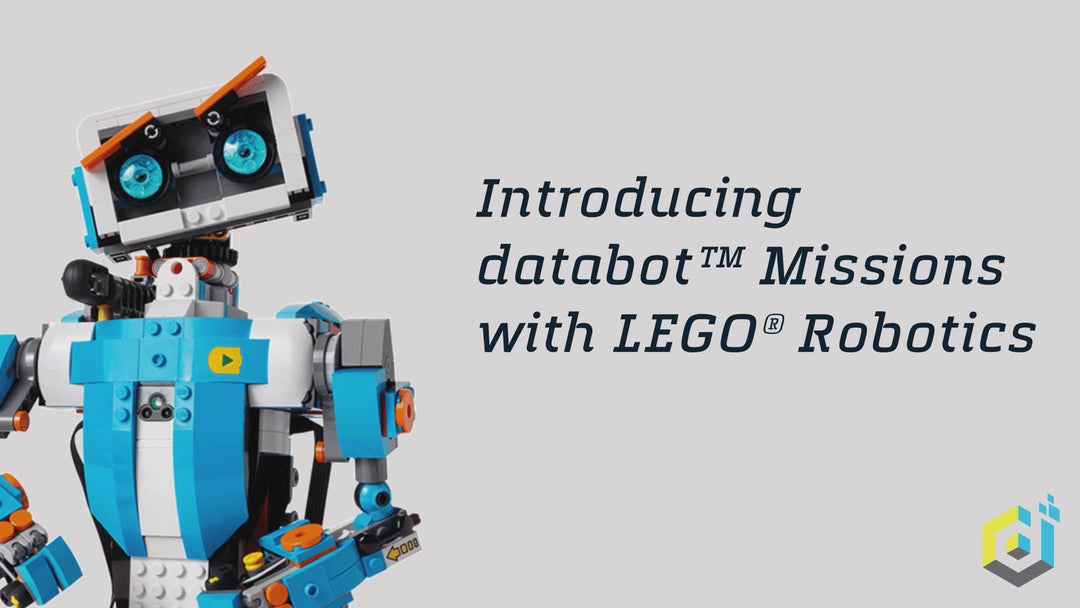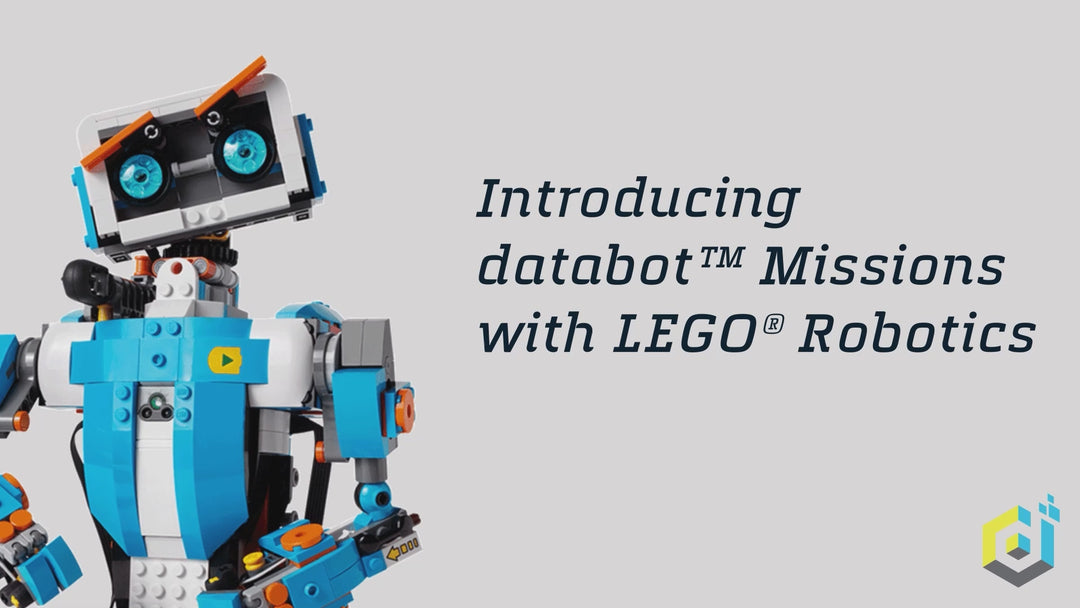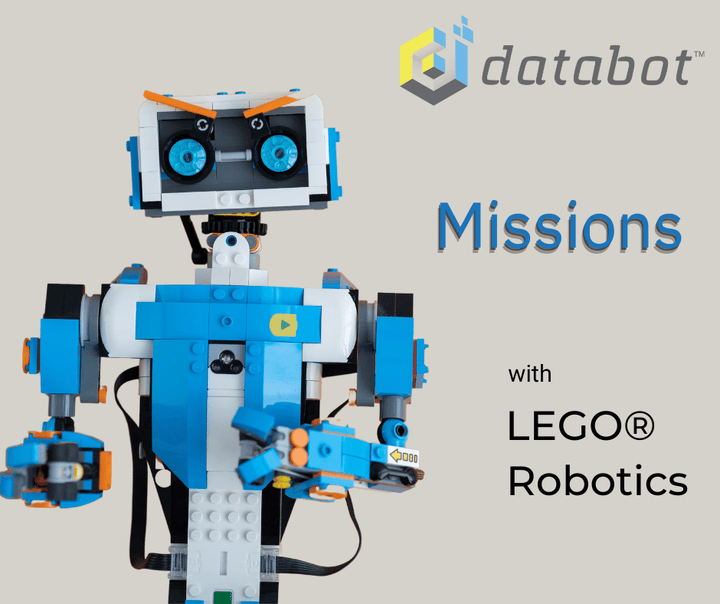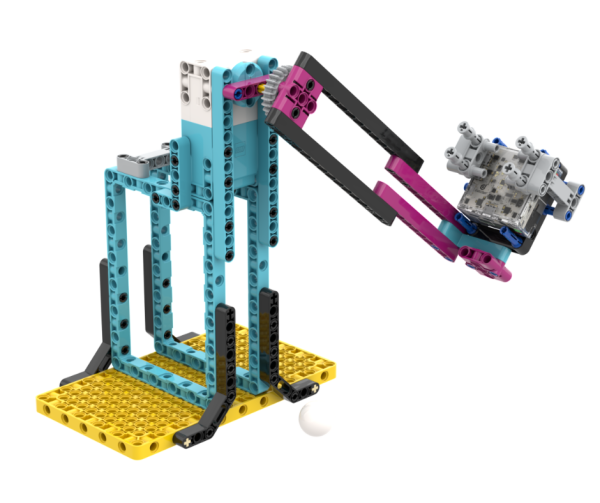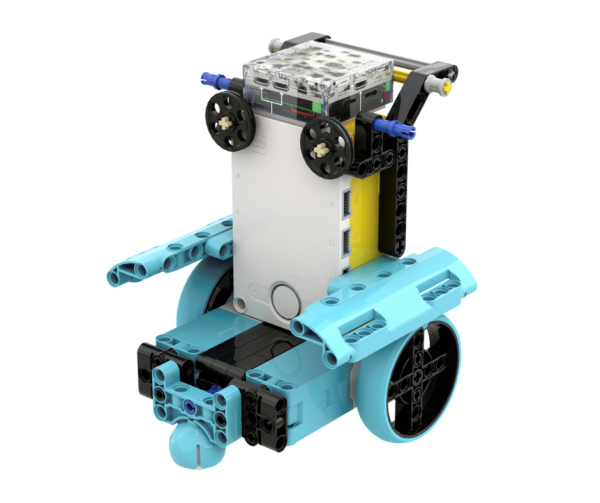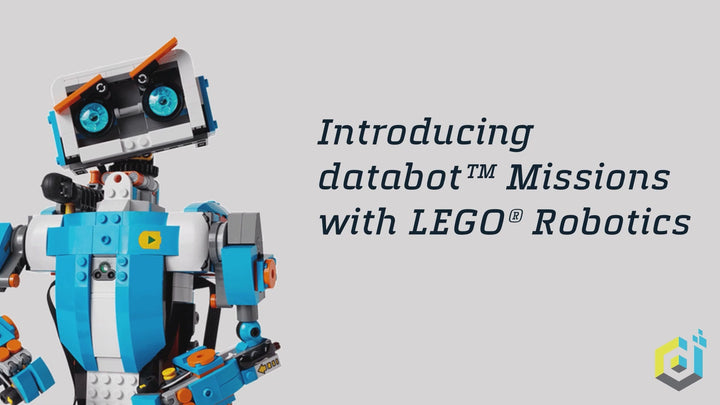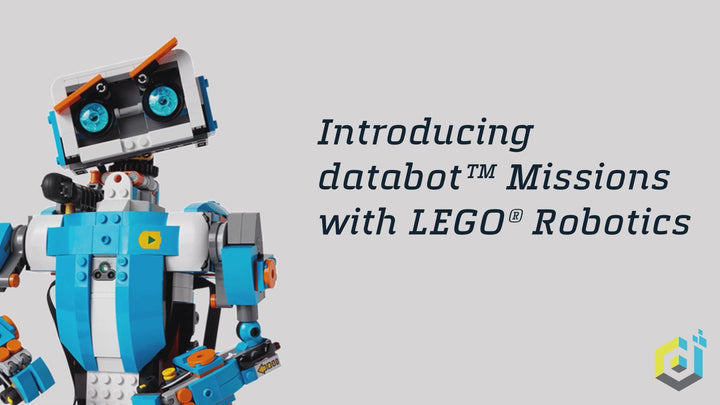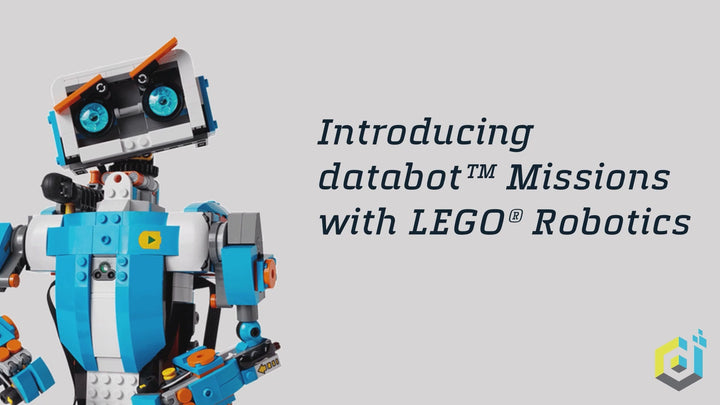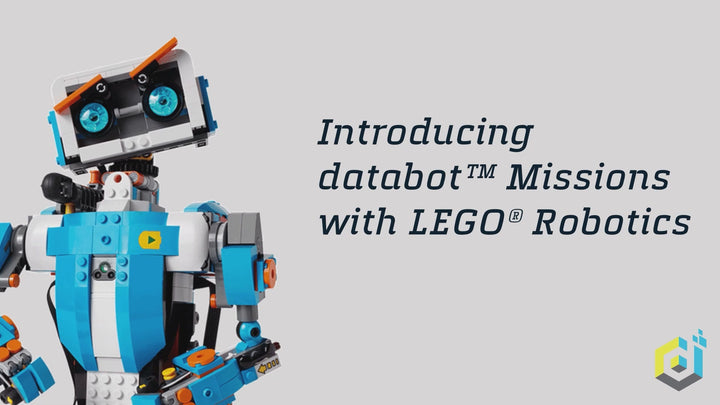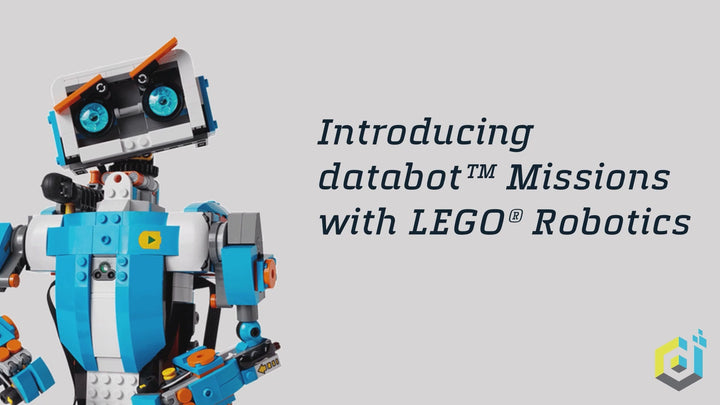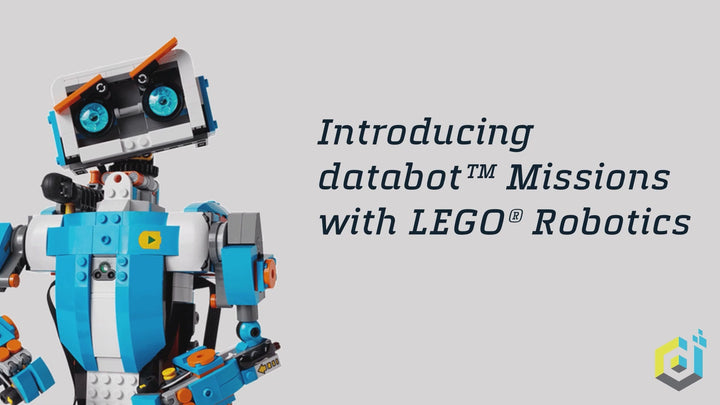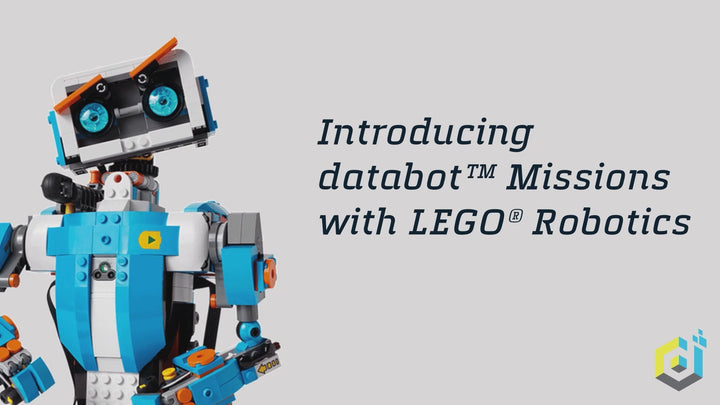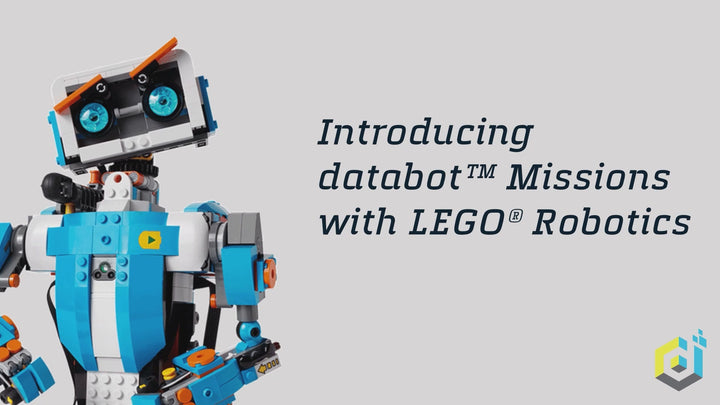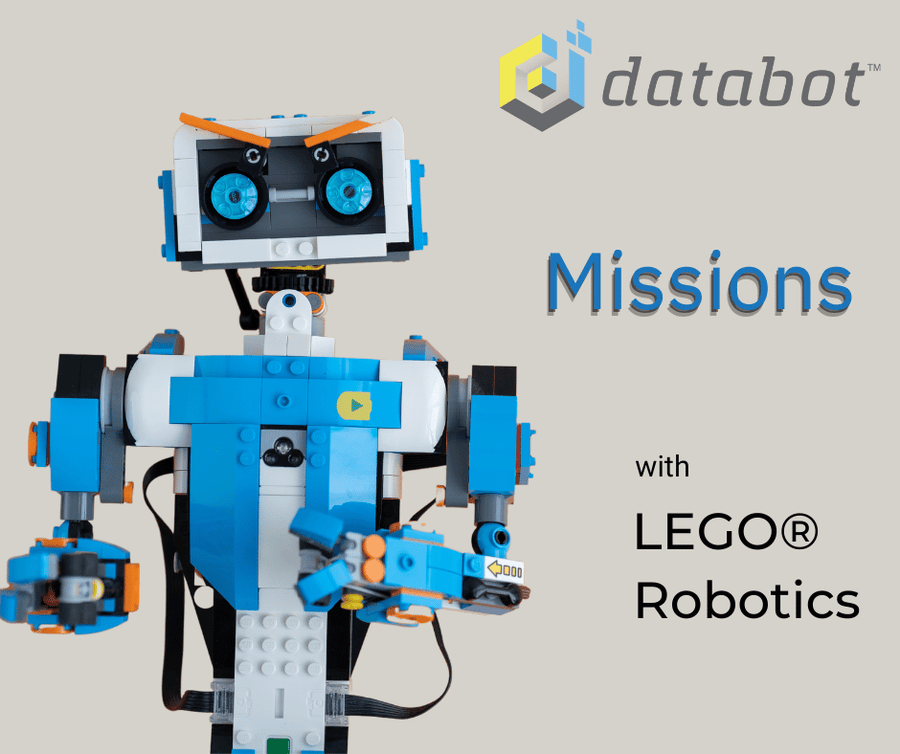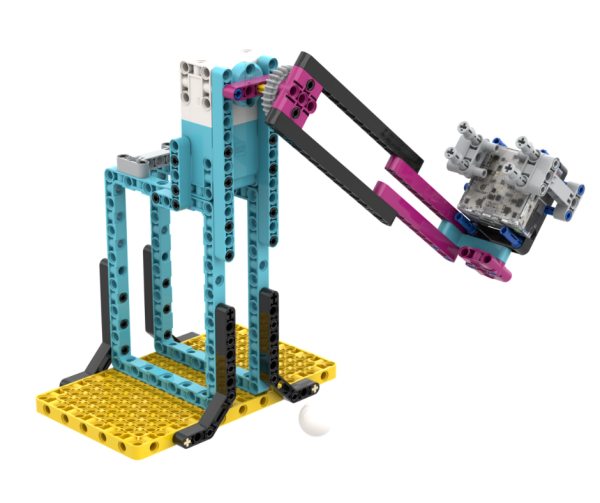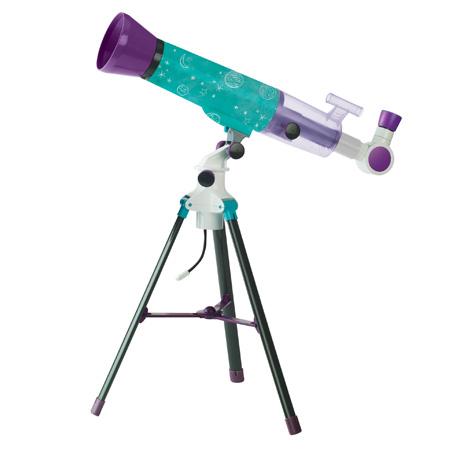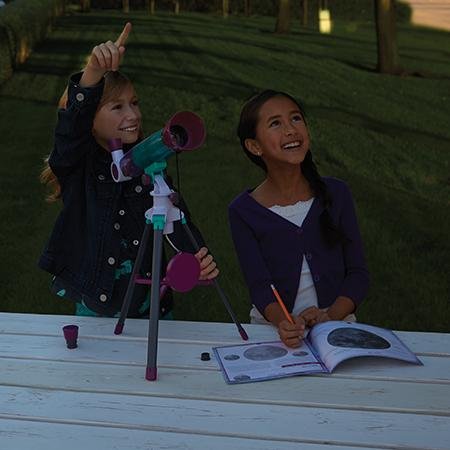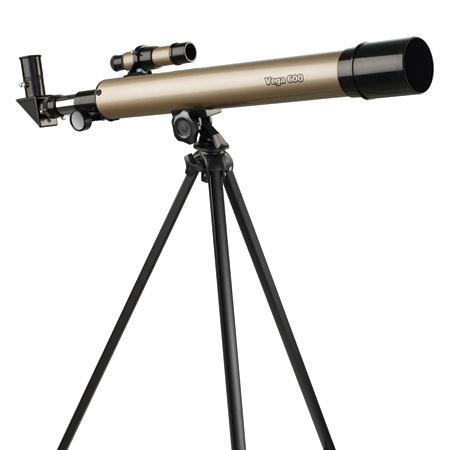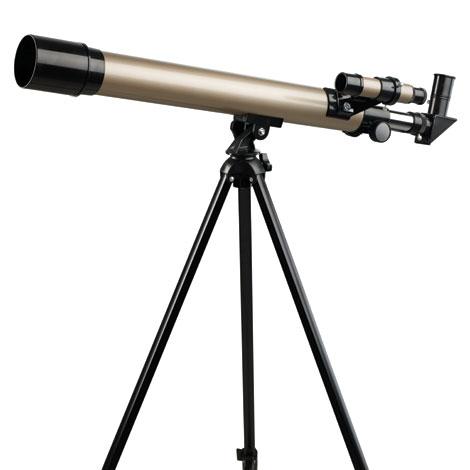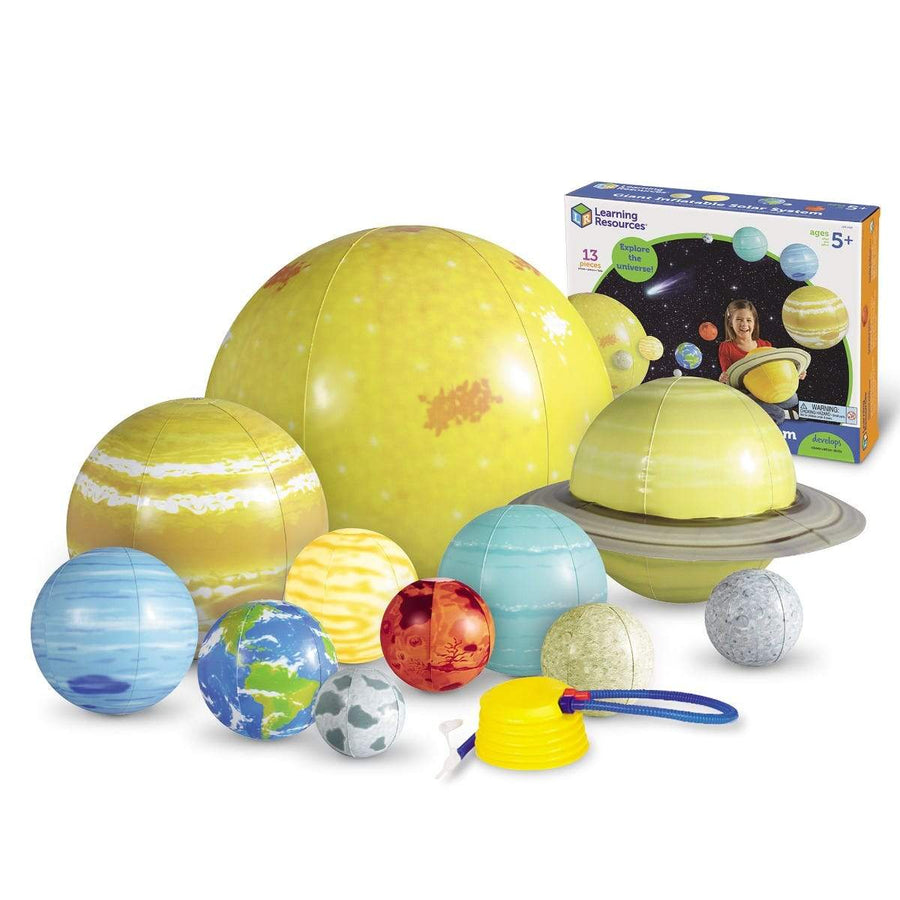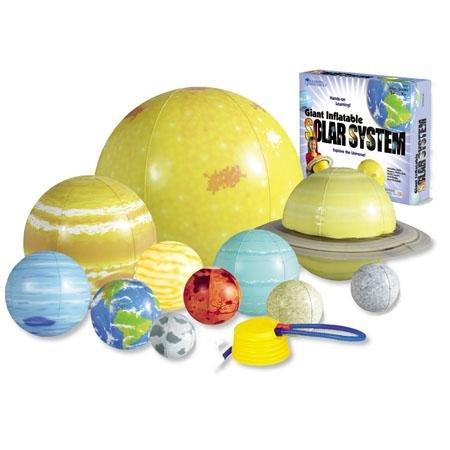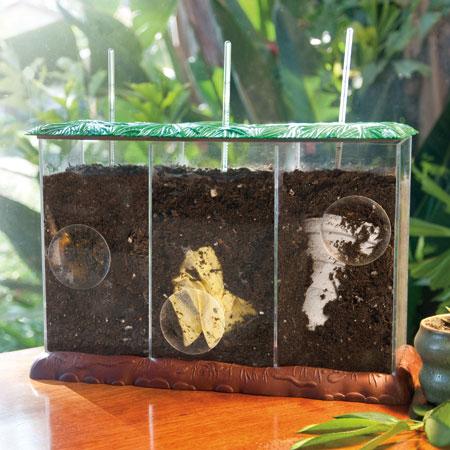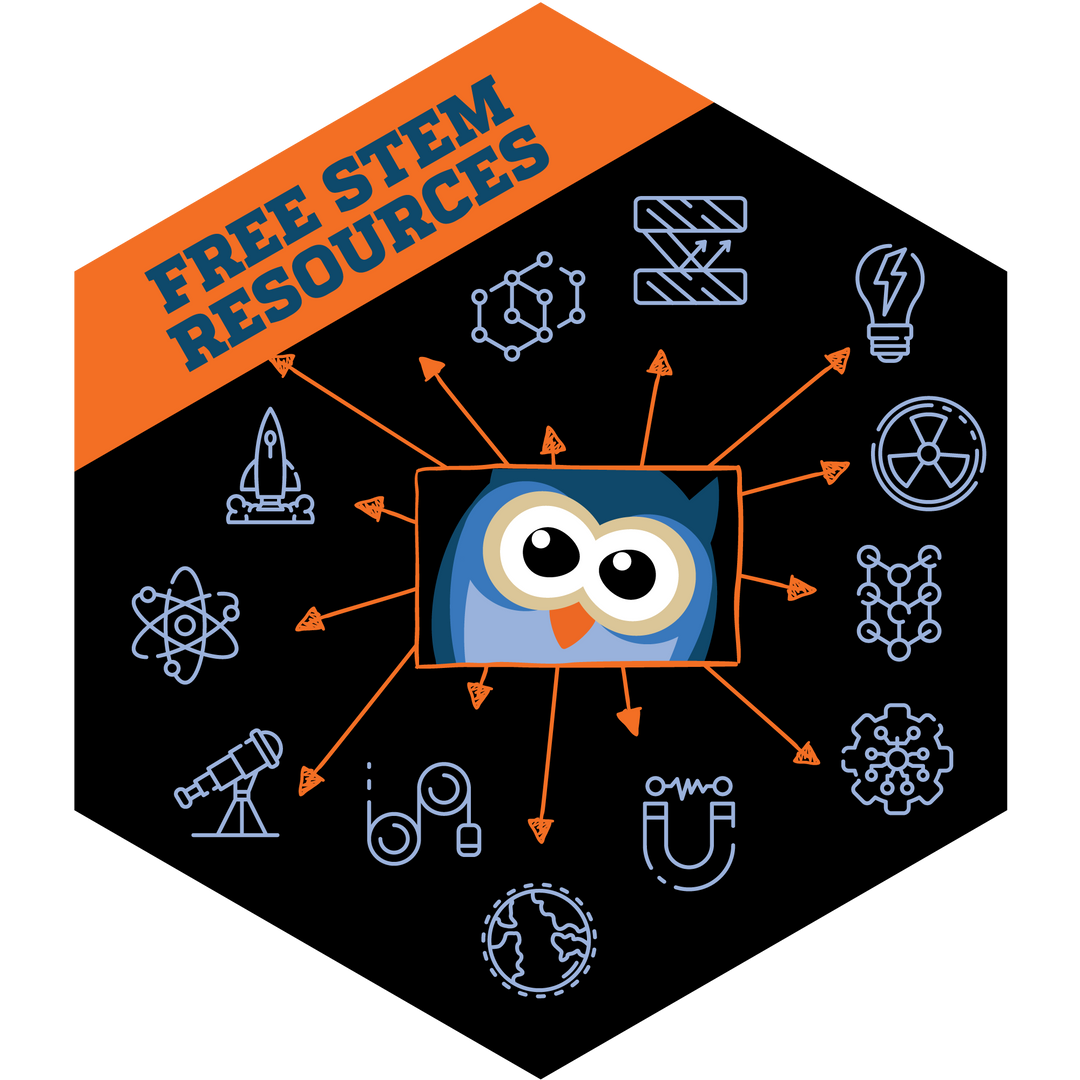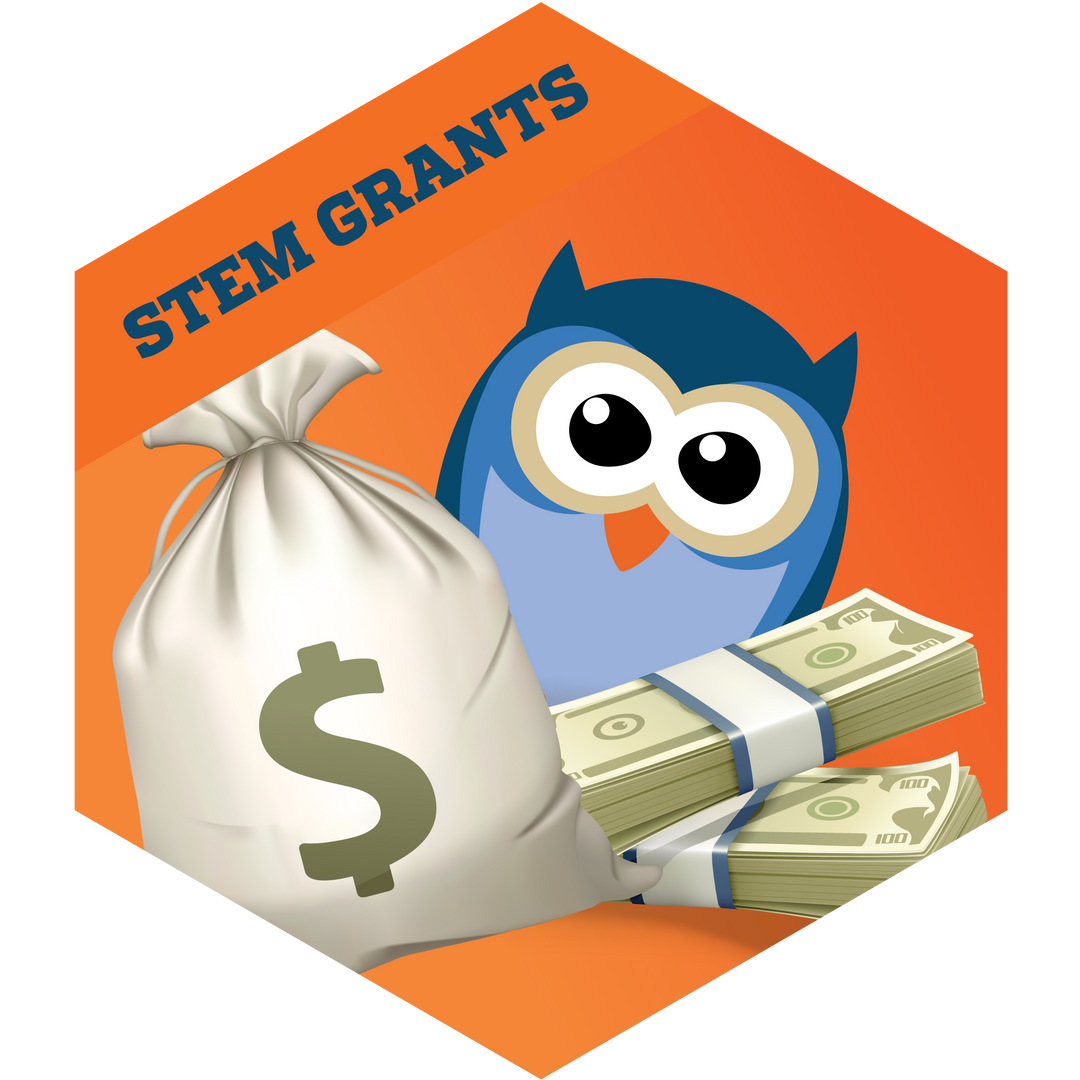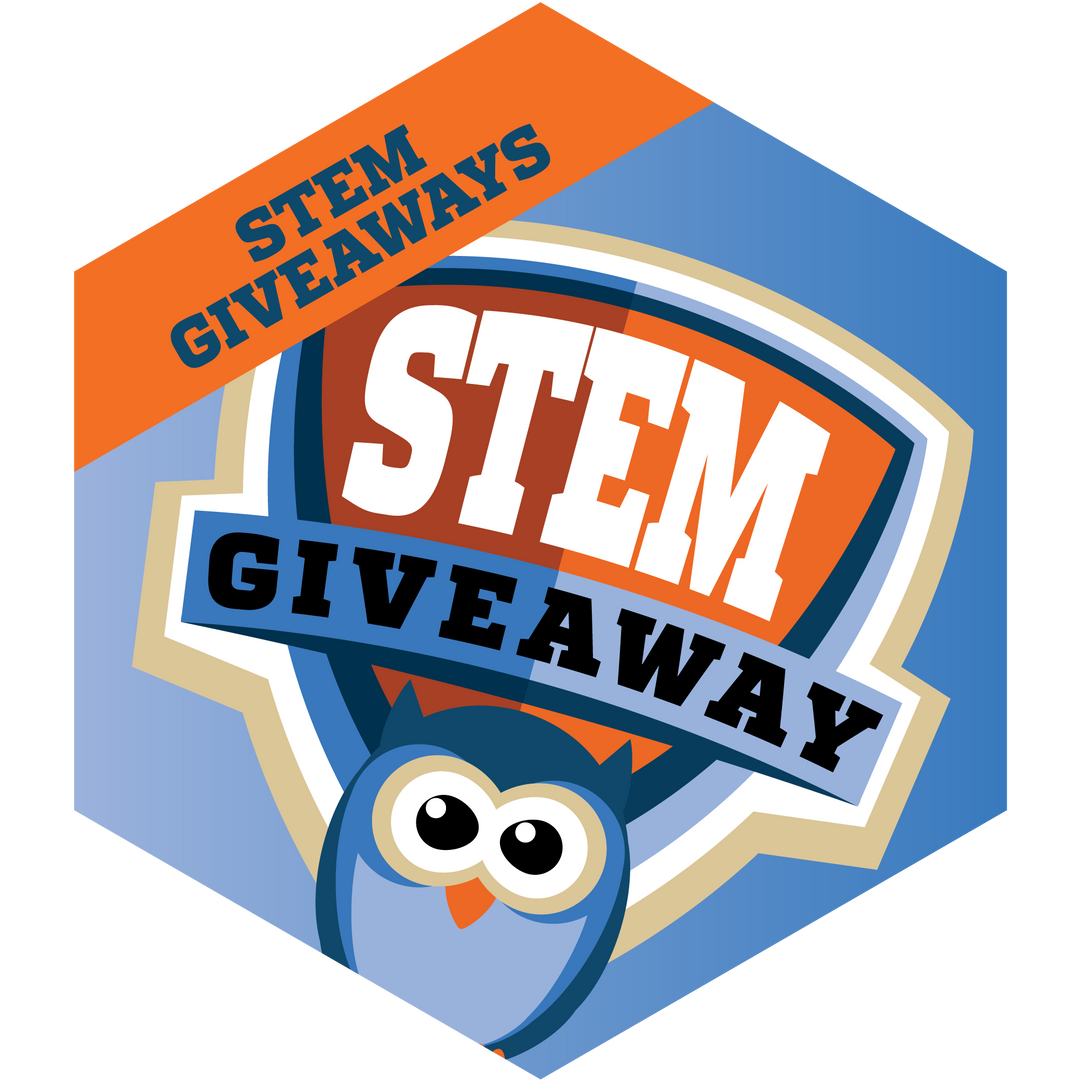databot™ Missions with LEGO® Robotics
- Grades: 4+
- Number of Students: N.A.
- Number of Lessons: 8
- Contact Hours: N.A.
- Additional Resources: Lesson Sample
Highlights:
Bring the Data Powered Magic of databot™ to Your LEGO® Robotics Program
This 120+ page digital lab manual provides eight awesome, data-driven missions to challenge your students to solve problems using live sensor data from databot™! All missions include detailed step-by-step support for integrating data collection and analysis into your current LEGO® program. The mission builds and instructions are designed for the LEGO® Spike Prime Educators kit #45678 but can be easily modified for earlier Mindstorms® kits.
Each mission is a career oriented scenario that poses a challenge to be overcome through the use of data. For example, mission #3, Putter Perfection, shown here is a sports science and engineering challenge. Your team has been hired by a professional golfer to help her improve her performance – her putting game is off! Here is an excerpt from the Background information on the mission.
Suggested Add-ons:
Curriculum or Lesson Topics:
These missions include complete instructions for creating the builds and integrating the data collection and analysis experience. For younger students conducting the builds and being introduced to collecting and visualizing data will be very useful. For older students there are advanced extensions and challenges in addition to data worksheets and calculations.
Mission 1: Spin Cycle
An accessibility company has developed a prototype of a new type of wheelchair that includes a variety of autonomous features to assist persons with disabilities. The wheelchair under development must have precise control of rotational speed for cornering and turning. Too fast a speed could potentially cause harm and too slow a speed is inefficient. Your team has been hired as Accessibility Engineers to develop the code to deliver a precise rotational speed of 6 RPM for this new wheelchair design. Your mission is to prepare and test the code and refine its accuracy using the data visualization app Vizeey™ and databot™’s gyroscope to measure the chair’s angular velocity.
Mission 2: CO2 Alarm!
Carbon dioxide (CO2) is a key indicator of indoor air quality (IAQ). Your team of indoor air quality professionals has been hired to study the air quality in a fitness center using a CO2 sensor and to design an alarm system that will alert center staff if indoor air quality is being compromised!
The LEGO® Spike Prime system does not include CO2 detection capabilities so you must engineer a system integration that will enable communications between two separate systems: the CO2 monitoring system and the alarm system. In this mission students use both the Spike Prime coding environment as well as the MicroBlocks® coding environment to control databot™.
Mission 3: Putter Perfection
Your team has been hired as biomechanical engineers by a professional golfer experiencing a career slump – her putting game is off! You will help her by demonstrating how to deliver perfect putts to a target 6′ away. Do this by adjusting the force of impact from LEGO® motor speed and swing angle. Work as a team. The data scientist will evaluate each round of code and the coder will adjust the force accordingly until the putting is “perfection.” Two forces that affect a golf ball are gravity and friction. Putting combines mass (the club head) and acceleration (the swing) to deliver a force to the ball to overcome gravity and friction.
Mission 4: Ferris Wheel
A new Ferris Wheel is being installed in an amusement park. Your team of engineers and test equipment specialists have been hired to test and adjust the ride speed for comfort and ride duration for this attraction. The Ferris wheel should provide a smooth and stable ride for passengers, with minimal vibration or wobble of the passenger cars and no discomfort to the riders. Passengers should also be able to enjoy a panoramic view of the surrounding area. In the attraction, the passenger cars are attached to the wheel’s outer rim in such a way that all the cars move in a circle. A uniform circular motion is a periodic motion that repeats at certain equal intervals of time. The angular (rotational) and linear velocity of the car in such motion is related to its period and frequency of rotation.
Mission 5: Whirlpool!
A small whirlpool has begun to form near the ocean shore where people often surf. Your team has been hired as Geophysicists to study the whirlpool and its potential threat to human life.
Your team will use Vizeey™ and the databot™ gyroscope to research and document scientific data regarding the speed of the water at which the whirlpool can pull a person into the vortex. The strength of a whirlpool can be measured using rotational speed measurements which can indicate the energy and intensity of the vortex.
Mission 6: Morse Code
Your team of experienced cryptographers has been invited to design and test a new communication network for exchanging information between the staff of two research laboratories.
Data encryption and decryption are essential techniques used to protect sensitive information from unauthorized access. A company that specializes in highly sensitive medical research needs your team to create a secure communications device that transmits messages using the optical transmission method. One team member will encrypt and transmit data and the other will receive and decrypt using Morse Code as the encryption key.
Mission 7: G-Force!
Space tourism becomes reality as the International Space Station opens up for space tourists! As experienced Simulator Technicians and Mechanical Engineers, you have been hired to design a machine that will prepare space travelers for the high levels of G Forces expected during the flight. This type of training helps astronauts to prepare for the changes in gravitational forces they will experience during launch, reentry, and spaceflight.
For the mission, your team will build a centrifuge to train future astronauts to withstand 3.5 Gs of acceleration by measuring the acceleration imparted by the centrifuge using the databot™ accelerometer.
Mission 8: Getting Warmer!
Global warming is caused by human activity, but it is possible to mitigate the effects and reduce the negative impacts on our climate. Greening can help prevent climate change. Your team has been hired as Environmental engineers to determine the best trees to plant based on carbon sequestration.
For this mission, using a machine designed to provide perfect control over inclination, the databot™ inclinometer, and a mathematical formula your team will calculate the amount of carbon stored in a particular tree by measuring its height and girth.
What’s Included:
Add databot™s and this Mission Guide and you will have everything you need to enhance your LEGO® Robotics summer camp, after-school program, CTE or STEM program or your homeschooling efforts.
- Background Materials
- Career Connections
- Real World Examples
- Build Plans
- Coding Instructions: Spike Prime
- databot™ Coding with MicroBlocks®
- Vizeey™ Data Collection and Visualization App
- Custom Vizeey™ App Experiments
- Extension Challenges
- Data Collection Tables and Worksheets
- Step by Step Instructions for Data Analysis
- Standards Alignments: NGSS, ISTE, TEKS, CBSE
NOTE: This product DOES NOT contain a LEGO® set or a databot™. LEGO ® sets and databot™s sold separately.
Additional Information and Resources:
Technology Requirements/Specifications:
For fast and easy sensor experiments the only technical requirement is to have a smart device (IOS or Android) such as a tablet or smartphone with Bluetooth to connect to databot™. You download the free app, Vizeey™, connect to databot and you’re up and running! For coding databot™ the MicroBlocks® coding environment is designed to run on Windows/MacOS/Chromebooks in a browser environment. No software installation required!
Special Notes and Considerations:
NOTE: Refunds or returns are NOT accepted for digital content. All sales final.
NOTE: This product DOES NOT contain a LEGO® set or a databot™. LEGO® sets and databot™s sold separately.
NOTE: Once you place your order you will receive a copy of the lab guide via email from databot within 1-2 business days.


